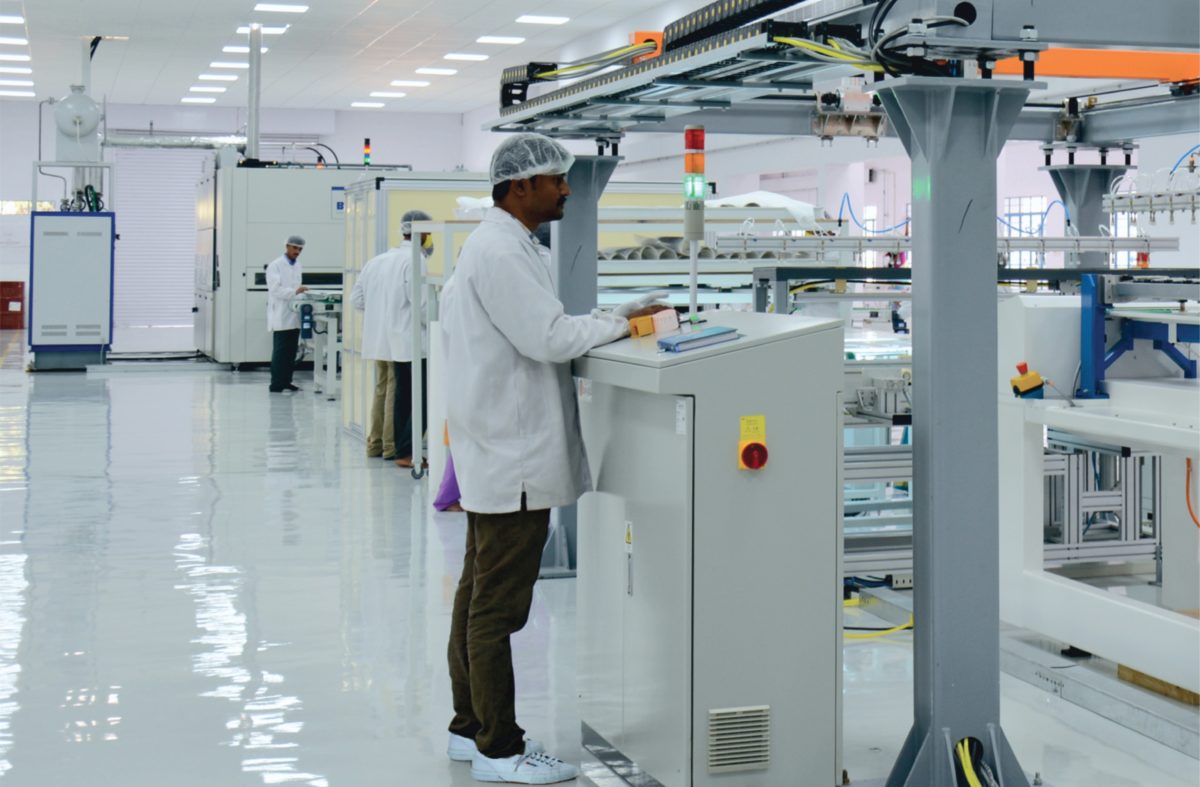Indian Renewable Energy Development Agency Ltd (IREDA) has indicated that it will soon launch the selection process for setting up high-efficiency solar PV manufacturing capacities under the Production Linked Incentive (PLI) Scheme.
The selection will be made through an open bidding/application process. The selection document would be issued soon on the website of IREDA, the agency notified.
Notably, the Ministry of New and Renewable Energy (MNRE) has appointed IREDA as the implementing agency for the scheme to drive integrated PV manufacturing, from polysilicon to finished panels.
IREDA has been entrusted with handling the scheme on behalf of MNRE and selecting the manufacturing capacities through bidding.
The MNRE has already issued PLI scheme guidelines for solar manufacturers who wish to apply for state cash to set up production lines. The guidelines say, “The manufacturing unit must have a minimum level of integration across solar cells and modules. The unit can integrate ingot and polysilicon manufacturing also.
The minimum capacity of the manufacturing unit to be installed under the scheme shall be 1 GW.
Further, the modules being manufactured under the scheme must offer minimum module efficiency of 19.5% with a Pmax temperature coefficient of better than -0.3% per degree Celsius, or a minimum module efficiency of 20% with a Pmax temperature coefficient equal to, or better than, -0.4% per degree Celsius.
‘The manufacturing capacities shall be online within a period of 18 to 36 months from date of award, depending on the level of integration.”
This content is protected by copyright and may not be reused. If you want to cooperate with us and would like to reuse some of our content, please contact: editors@pv-magazine.com.









By submitting this form you agree to pv magazine using your data for the purposes of publishing your comment.
Your personal data will only be disclosed or otherwise transmitted to third parties for the purposes of spam filtering or if this is necessary for technical maintenance of the website. Any other transfer to third parties will not take place unless this is justified on the basis of applicable data protection regulations or if pv magazine is legally obliged to do so.
You may revoke this consent at any time with effect for the future, in which case your personal data will be deleted immediately. Otherwise, your data will be deleted if pv magazine has processed your request or the purpose of data storage is fulfilled.
Further information on data privacy can be found in our Data Protection Policy.